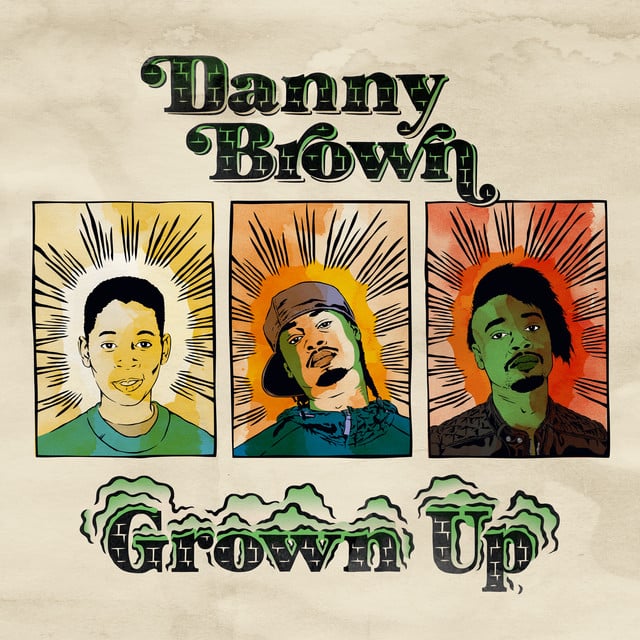Released: 2024
Danny Brown’s song “Syrian Skies” paints a poignant picture of love under the strain of distance and separation, using war-like metaphors to illustrate emotional conflicts. The narrative weaves through farewells in parking lots, star-filled nights, and longing looks towards uncertain skies, ultimately questioning whether love can endure through the metaphorical ‘Cold War.’ Brown’s unique lyrical approach combines heartfelt sentiments with an awareness of both literal and metaphorical warfare.
The song begins with the line “2AM parking lot goodbye,” instantly setting the stage for a melancholic departure, hinting at a repetitive cycle of farewells, indicative of a long-distance relationship. When Brown says, “Acting like we ain’t done this a dozen times,” it underscores a weary familiarity with these painful goodbyes. Both individuals appear haunted, as if they’ve “seen a ghost,” capturing the unsettling emotions of leaving behind someone significant.
Danny Brown conveys the urgent need to part ways by expressing, “Gotta get my bags one last kiss and go.” Here, the inevitable nature of leaving is met with a reluctant goodbye. He refers to catching “a flight to the other edge of the world,” symbolizing the significant distance both physically and emotionally between them, as well as the life and commitments pulling him away.
There’s an acknowledgment of uncertainty with “6 months later baby I’m wondering if you’ll still be my girl.” This line speaks volumes about the fears and doubts surrounding their future, encapsulating the common dread of many long-distance couples who worry about the endurance of their bond. The lyrical beauty continues as “the moon’s playing tricks and slingshotting stars around,” capturing the surreal and fleeting beauty of their brief encounters.
Brown then reassures his partner with the promise of returning to her embrace “as soon as I touchdown.” It’s a comforting vow that attempts to soften the reality of the prolonged absence, holding onto the hope of a reunion. The hook captures a poignant vision: “At night those Syrian skies, They’re what get me by.” The phrase “Syrian skies” might suggest tumultuous and unpredictable scenarios, yet also highlights the inspiration and hope that sustains him during lonely nights.
The directive, “Baby dry your eyes, You’re up with me here tonight,” encourages her to be emotionally present despite their physical separation, fostering a sense of connection through words. Yet, he admits, “this long Cold War has our hearts torn,” cleverly using a historical reference to describe the emotional divide. This metaphor serves to emphasize the sense of hostility and disconnect felt in the absence of one another, drawing parallels to global tensions that have long affected human relationships.
Continuing through the verse, Brown turns to modern-day challenges with “Grainy FaceTime trying to say the right lines.” Here, he laments over technology’s limitations in maintaining intimacy, which can often feel inadequate and superficial when compared to physical closeness. “10 minutes then it’s back to the flight line,” conveys the sense of hurried, insufficient communication sessions before he must return to duty, reinforcing the obstacles they face in trying to keep their relationship alive.
The longing is deepened when he pleads “Send for me, won’t you send your love.” The physical separation leaves a void he hopes to fill through emotional closeness. Imagining his lover’s face in “the stars above” highlights the ethereal yet elusive nature of their relationship, using the night sky as a constant yet distant reminder of his yearning for connection.
Brown openly admits feeling directionless when he states, “My compass ain’t pointed me true in months.” This conveys his personal sense of lost purpose without his partner’s guidance and support, showing the significant impact of her absence on his emotional stability. His subsequent need for her “grace and touch” further underlines this dependency and desire for reunion.
Finally, Brown brings us full circle with his consistent return to the hopeful vision of “the moon’s playing tricks and slingshotting stars around.” This motif becomes a constant reassurance of returning home to his loved one. In the historical context, “Syrian skies” might resonate with those familiar with Syria’s own conflicts, cleverly linking personal emotional turmoil to global events, reminding listeners of both personal and shared struggles. Overall, Danny Brown’s “Syrian Skies” skillfully blends personal heartache with historical references, delivering a complex narrative on the trials and triumphs of love amid separation.








